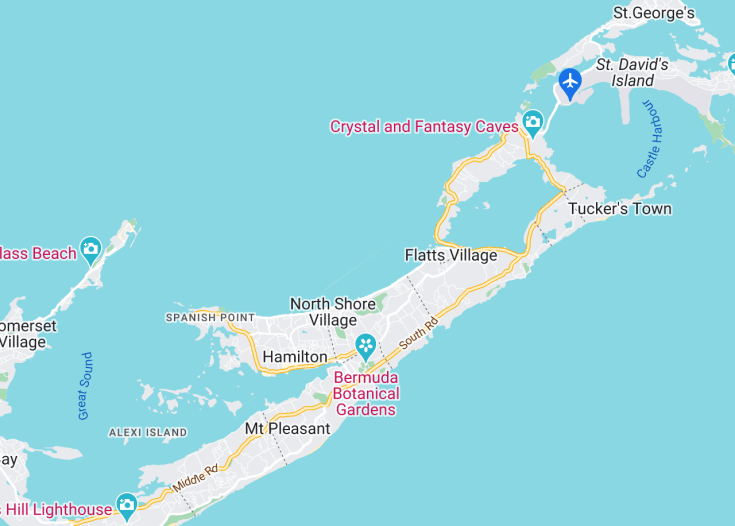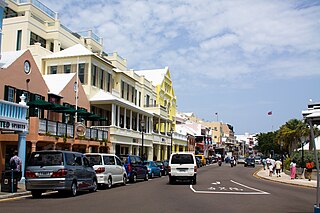Renowned for its stunning pink sand beaches, Bermuda is an unparalleled Atlantic gem. Nestled just off the eastern coast of the United States, this island haven invites visitors with its blend of British colonial history, unique maritime culture, and a temperate climate promising year-round allure. Discover a destination where tradition meets tranquility.
Immerse yourself in the crystal-clear turquoise waters and pink sandy beaches that make Bermuda a tropical paradise. Discover its rich history, vibrant culture, and stunning natural landscapes. When packing for Bermuda, always include light layers. Despite its tropical appearance, evenings can get a bit breezy, especially by the shore.
Don’t limit yourself to the coast; venture inland to explore the island’s lush gardens, historical sites, and charming towns. Bermuda’s vibrant coral reefs offer a colorful underwater world waiting to be explored. Experience the beauty of its marine life up close and personal.
Top destinations in Bermuda (United Kingdom)
Bermuda: The Enchanting Island Paradise
| Capital | Hamilton |
| Time in Bermuda | GMT-4 |
| Language spoken | English |
| Population | 62,506 (World Bank, 2020) |
| Religion | Christianity (46.7%), Non-religious (17.6%), Other religions (35.7%) |
| Currency | Bermudian dollar (BMD), BMD |
| Airports | L.F. Wade International Airport Bermuda Airports (BDA) |
Set amidst the azure expanses of the North Atlantic Ocean, Bermuda offers a rich tapestry of history and unparalleled natural beauty. Originally discovered in the early 16th century, its colonization by the English in 1609 ushered in a pivotal era marked by maritime endeavors, trade, and cultural exchange. While initially known as a treacherous territory for sailors, with the infamous Bermuda Triangle legends, it soon evolved into a prosperous British colonial outpost. Over the centuries, Bermuda has masterfully blended its indigenous roots with British traditions, creating a distinctive cultural mosaic that entices travelers worldwide.
Where is Bermuda located?
Bermuda is a group of islands located in the North Atlantic Ocean, about 665 miles east of Cape Hatteras, North Carolina. Despite being geographically closer to the United States, Bermuda is actually a British Overseas Territory and remains under the sovereignty of the United Kingdom.
What is Bermuda famous for?
Bermuda is famous for its stunning pink sand beaches, which are a result of tiny red organisms known as foraminifera that live in the coral reefs surrounding the islands. These organisms have shells that contain a red pigment, which gives the sand its unique pink hue. Besides its beaches, Bermuda is also known for its world-class diving and snorkeling spots, historic towns, and vibrant cultural festivals.
History
First Inhabitants and Discovery (Pre-1500s)
While there is no evidence of indigenous inhabitants on Bermuda, the island was known to early European explorers. It first appeared on Spanish maps in the early 16th century, named after the explorer Juan de Bermúdez, who reported sighting the uninhabited islands in 1505. Due to its treacherous reefs, early seafarers dubbed it the “Isle of Devils.”
English Settlement (1609 – 1700s)
In 1609, an English ship, the “Sea Venture,” bound for the Jamestown colony in Virginia, was shipwrecked on Bermuda. This accidental landing led to the island’s first settlement. Recognizing its strategic location, the English Crown claimed the islands and sent settlers, resulting in the establishment of a permanent colony in 1612. Tobacco cultivation became the initial backbone of the economy, though the limited land size soon made it unsustainable.
Naval Importance and Slavery (1700s – 1834)
Bermuda’s significance as a naval base grew, especially during the American War of Independence and the Napoleonic Wars, due to its position between the American colonies and Europe. Slavery was introduced to the island, with enslaved people working in various capacities, from household tasks to shipbuilding. However, the anti-slavery movement gained momentum, and Bermuda became one of the first British colonies to emancipate slaves in 1834.
Fortification and Global Wars (19th Century – 1945)
Recognizing its strategic maritime location, the British heavily fortified Bermuda in the 19th century, making it the “Gibraltar of the West.” During both World Wars, Bermuda played a pivotal role as a naval and air base. The island served as a crucial hub for transatlantic convoys, reconnaissance missions, and anti-submarine warfare.
Modern Era and Tourism (1945 – Present)
Post-World War II, Bermuda transitioned from a military economy to one centered on international business and tourism. Its idyllic beaches, turquoise waters, and unique culture made it a favorite destination for vacationers. The island also established itself as a global reinsurance center, drawing businesses from around the world. In recent decades, Bermuda has grappled with issues of self-governance, civil rights, and immigration. It has sought to balance its British colonial legacy with a distinct Bermudian identity. Today, Bermuda enjoys a high standard of living and stands as a symbol of resilience, adaptability, and cultural vibrancy in the Atlantic.
Visit Bermuda
What to see and do in Bermuda
Bermuda offers a variety of attractions and activities for visitors to enjoy. Here are some highlights:
- Explore the stunning beaches, such as Horseshoe Bay Beach and Tobacco Bay Beach, known for their pristine pink sand and turquoise waters.
- Visit the historic town of St. George, a UNESCO World Heritage Site, and discover its well-preserved colonial architecture.
- Take a tour of the iconic Royal Naval Dockyard, which houses museums, shops, and restaurants.
- Immerse yourself in Bermuda’s cultural heritage at the Bermuda National Gallery and the Bermuda Underwater Exploration Institute.
- Enjoy outdoor adventures like snorkeling, scuba diving, and kayaking in the island’s beautiful marine environment.
Short tile about events in Bermuda
Bermuda hosts a variety of events throughout the year, providing visitors with opportunities to engage with the local culture and traditions. Some notable events include:
- The Bermuda Festival of the Performing Arts, held in January and February, featuring music, dance, and theater performances.
- The Annual Agricultural Exhibition, held in April, showcasing Bermuda’s agricultural heritage and offering fun activities for the whole family.
- The Bermuda Day Heritage Parade, held in May, celebrating the island’s history and culture with colorful parades and festivities.
- The Newport Bermuda Race, held every two years in June, attracting international sailors for an exciting ocean racing competition.
Best time to visit Bermuda
Bermuda enjoys a mild and pleasant climate throughout the year, making it a great destination for travelers. The peak tourist season runs from May to September when temperatures are warm and beaches are inviting. However, visiting during the shoulder seasons of spring (April to May) and fall (September to October) can offer a quieter atmosphere and more affordable prices, while still enjoying favorable weather. The winter months from November to March bring cooler temperatures and occasional rainfall, but it can be a good time for budget-conscious travelers looking for discounted rates.
Is Bermuda worth visiting?
Bermuda is definitely worth visiting for those seeking a unique blend of natural beauty, rich history, and vibrant culture. Its stunning pink sandy beaches, crystal-clear waters, and warm climate make it an alluring destination. The island’s colonial heritage and UNESCO-listed town of St. George offer a glimpse into its fascinating past. Bermuda’s events and festivals celebrate local traditions and provide a chance to immerse oneself in the vibrant island culture.
However, it’s important to note that Bermuda can be a relatively expensive destination and may not suit travelers on a tight budget. Additionally, the island’s smaller size compared to some other beach destinations means that visitors looking for extensive nightlife or a bustling city atmosphere may find it lacking. Nevertheless, for those seeking a tranquil and picturesque escape, Bermuda remains a captivating choice.











